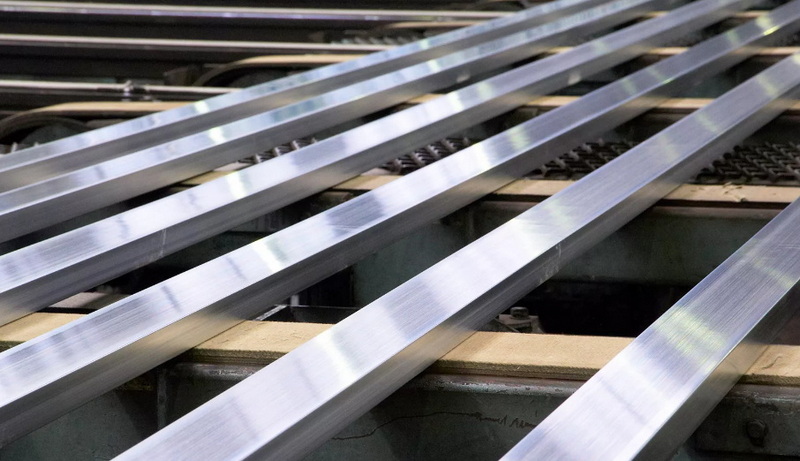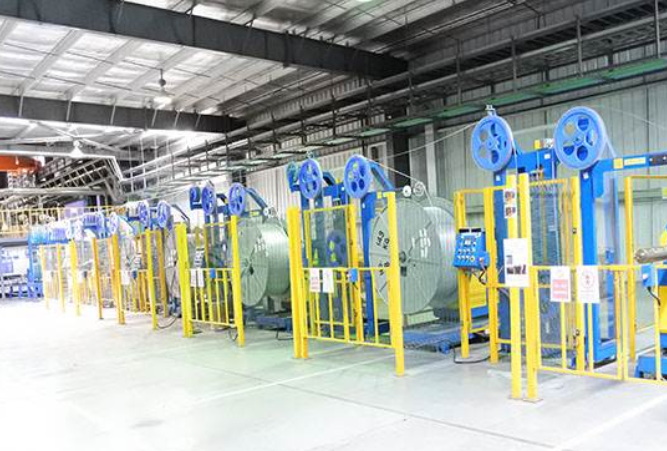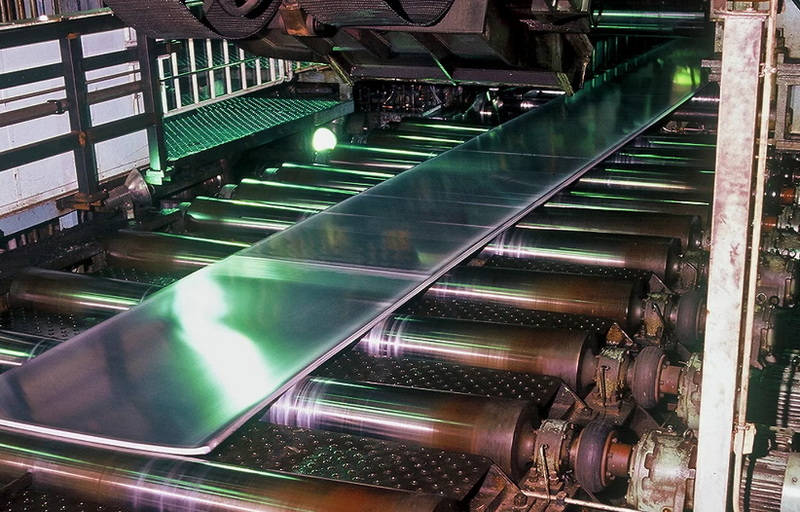Content Menu
● 1. Aerospace Industry
● 2. Automotive Industry
● 3. Construction Industry
● 4. Marine Industry
● 5. Renewable Energy Sector
● 6. Medical Equipment Manufacturing
● 7. Electronics Industry
● The Benefits of Aluminum Extrusion
● Aluminum Extrusion Process Overview
● Future Trends in Aluminum Extrusion
● Conclusion
● FAQ
>> 1. What is aluminum extrusion?
>> 2. Why is aluminum preferred in automotive manufacturing?
>> 3. How does the aerospace industry benefit from aluminum extrusion?
>> 4. Can you explain how aluminum extrusion supports renewable energy?
>> 5. What are some common applications of aluminum extrusions in construction?
● Citations:
Aluminum extrusion is a manufacturing process that shapes aluminum by forcing it through a die, resulting in a variety of profiles and forms. This process is widely utilized across many industries due to aluminum's lightweight, strength, and corrosion resistance. In Massachusetts, several key industries rely heavily on aluminum extrusion for their operations. Understanding these industries provides insight into the economic landscape of the state and the role of aluminum manufacturing within it.

1. Aerospace Industry
The aerospace sector is one of the most significant users of aluminum extrusion in Massachusetts. The lightweight nature of aluminum makes it an ideal material for aircraft components, contributing to fuel efficiency and performance.
- Applications: Structural components, frames, and fittings.
- Benefits: Reduced weight leads to lower fuel consumption and increased payload capacity.
The aerospace industry in Massachusetts is bolstered by leading companies that specialize in aircraft manufacturing and maintenance. These companies often require custom extrusions that meet stringent safety and performance standards. The ability to produce complex shapes allows engineers to design components that optimize airflow and structural integrity, which are critical for aircraft performance.
2. Automotive Industry
Massachusetts hosts a robust automotive industry that increasingly relies on aluminum extrusions for various parts. The shift towards lightweight materials in vehicle manufacturing has made aluminum a preferred choice.
- Applications: Chassis components, heat exchangers, and body panels.
- Benefits: Enhanced fuel efficiency and reduced emissions.
With the automotive market evolving towards electric vehicles (EVs), the demand for lightweight materials like aluminum is on the rise. Aluminum extrusions help reduce the overall weight of vehicles, which is essential for maximizing battery efficiency in EVs. As manufacturers seek to improve vehicle performance while adhering to environmental regulations, the role of aluminum extrusion becomes even more critical.
3. Construction Industry
In construction, aluminum extrusions are used for both structural and aesthetic applications. The versatility of aluminum allows architects and builders to create innovative designs while maintaining structural integrity.
- Applications: Window frames, curtain walls, roofing systems, and structural beams.
- Benefits: Durability and low maintenance requirements.
Aluminum's resistance to corrosion makes it an ideal choice for outdoor applications in construction. In Massachusetts, where weather conditions can vary significantly, using aluminum extrusions helps ensure longevity and reduces the need for frequent repairs or replacements. Additionally, architects appreciate the aesthetic flexibility that aluminum provides, allowing for sleek designs that enhance building facades.
4. Marine Industry
Given Massachusetts' extensive coastline, the marine industry is another significant consumer of aluminum extrusions. Aluminum's resistance to corrosion makes it ideal for marine applications.
- Applications: Boat hulls, frames, and fittings.
- Benefits: Long-lasting performance in harsh marine environments.
The marine industry benefits from aluminum's lightweight properties as well; boats constructed with aluminum extrusions are easier to maneuver and more fuel-efficient than those made from heavier materials. Furthermore, with advancements in welding techniques and surface treatments, manufacturers can create robust marine structures that withstand the rigors of saltwater environments.
5. Renewable Energy Sector
With the growing emphasis on sustainability, the renewable energy sector has turned to aluminum extrusion for various applications, particularly in solar energy systems.
- Applications: Solar panel frames and mounting systems.
- Benefits: Lightweight yet strong structures that can withstand environmental stresses.
As solar energy continues to gain traction as a primary energy source, the demand for efficient mounting systems has surged. Aluminum extrusions provide an ideal solution due to their strength-to-weight ratio and resistance to corrosion. In Massachusetts, where state policies encourage renewable energy initiatives, companies are increasingly investing in aluminum solutions for solar projects.
6. Medical Equipment Manufacturing
The medical industry also utilizes aluminum extrusions for manufacturing equipment due to its biocompatibility and ease of sterilization.
- Applications: Hospital beds, surgical instruments, diagnostic equipment housings.
- Benefits: Lightweight construction facilitates mobility and handling.
In hospitals and healthcare facilities, equipment must be both functional and easy to clean. Aluminum's non-corrosive properties make it suitable for medical environments where hygiene is paramount. Additionally, custom extrusions can be designed to accommodate specific medical technologies or ergonomic needs of healthcare professionals.

7. Electronics Industry
The electronics sector relies on aluminum extrusions for housing components due to their excellent thermal conductivity and aesthetic appeal.
- Applications: Heat sinks, enclosures, support brackets.
- Benefits: Effective heat dissipation enhances device performance.
As electronic devices become more compact and powerful, managing heat becomes increasingly important. Aluminum's ability to dissipate heat effectively makes it a preferred material for heat sinks used in computers and other electronic devices. The aesthetics of anodized or painted aluminum also contribute to product design by allowing manufacturers to offer visually appealing products without sacrificing functionality.
The Benefits of Aluminum Extrusion
Aluminum extrusion offers numerous advantages that make it an attractive option across various industries:
- Lightweight: Aluminum is significantly lighter than steel or other metals while maintaining comparable strength.
- Corrosion Resistance: Aluminum naturally forms a protective oxide layer that prevents corrosion.
- Versatility: The extrusion process allows for complex shapes tailored to specific applications.
- Recyclability: Aluminum is 100% recyclable without loss of quality, making it an environmentally friendly choice.
- Cost-Effectiveness: While initial costs may be higher than some other materials, the long-term savings associated with durability and low maintenance often outweigh these costs.
These benefits contribute not only to individual company success but also enhance overall industry productivity within Massachusetts.
Aluminum Extrusion Process Overview
To understand why so many industries depend on aluminum extrusion, it's essential to look at how the process works:
1. Billet Preparation: Aluminum logs (billets) are cut to size and heated.
2. Extrusion: The heated billet is placed in a press where it is forced through a die under high pressure.
3. Cooling: The extruded profile is cooled either naturally or through quenching.
4. Stretching: After cooling, the profile is straightened.
5. Aging: The extruded shape undergoes aging to enhance its mechanical properties.
6. Finishing: Finally, the profiles may be anodized or painted for added protection and aesthetics.
This process allows manufacturers to create complex shapes that meet specific needs across various applications.
Future Trends in Aluminum Extrusion
As technology evolves, so does the potential for innovation within the aluminum extrusion process:
- Advanced Alloys: Research into new alloys can lead to improved performance characteristics tailored for specific applications.
- Automation: Increased automation in manufacturing processes can enhance efficiency and reduce production costs.
- Sustainability Initiatives: Companies are focusing on sustainable practices throughout their supply chains, from sourcing raw materials responsibly to minimizing waste during production.
- Customization Options: As industries demand more tailored solutions, manufacturers are investing in technologies that allow for greater customization of profiles during production.
These trends indicate a bright future for aluminum extrusion not only within Massachusetts but also globally as industries continue adapting to changing market demands.
Conclusion
Aluminum extrusion plays a crucial role in multiple industries within Massachusetts. From aerospace to renewable energy, the versatility of aluminum allows for innovative solutions that enhance performance while reducing weight and costs. As industries continue to evolve towards sustainability and efficiency, the demand for aluminum extrusions is expected to grow even further.
Understanding these applications not only highlights the importance of this manufacturing process but also underscores Massachusetts' position as a hub for advanced manufacturing technologies.

FAQ
1. What is aluminum extrusion?
Aluminum extrusion is a process where heated aluminum billets are forced through a die to create specific shapes or profiles used in various applications across multiple industries.
2. Why is aluminum preferred in automotive manufacturing?
Aluminum is preferred in automotive manufacturing due to its lightweight characteristics which contribute to improved fuel efficiency and reduced emissions in vehicles.
3. How does the aerospace industry benefit from aluminum extrusion?
The aerospace industry benefits from aluminum extrusion by utilizing lightweight yet strong materials that enhance aircraft performance while contributing to fuel efficiency.
4. Can you explain how aluminum extrusion supports renewable energy?
Aluminum extrusion supports renewable energy by providing durable and lightweight structures for solar panel frames and mounting systems that can withstand environmental stresses while being cost-effective.
5. What are some common applications of aluminum extrusions in construction?
Common applications of aluminum extrusions in construction include window frames, curtain walls, roofing systems, and other structural elements that require durability and aesthetic appeal.
Citations:
[1] https://www.hydro.com/profiles/aluminum-extrusions-north-america
[2] https://piercealuminum.com/locations/franklin-ma/
[3] https://aluminumextrusions.net/usa/
[4] https://www.youtube.com/watch?v=iiGlq7408ME
[5] https://www.youtube.com/watch?v=Olytr4PEDPs
[6] https://dajcor.com/extrusion
[7] http://scaluminum.com/2021/10/american-aluminum-extrusion-quality-products-made-in-the-usa/
[8] https://www.thomasnet.com/suppliers/eastern-massachusetts/all-cities/aluminum-extrusions-26890400
[9] https://www.youtube.com/watch?v=DqILlMsNYLw
[10] https://www.minalex.com






















